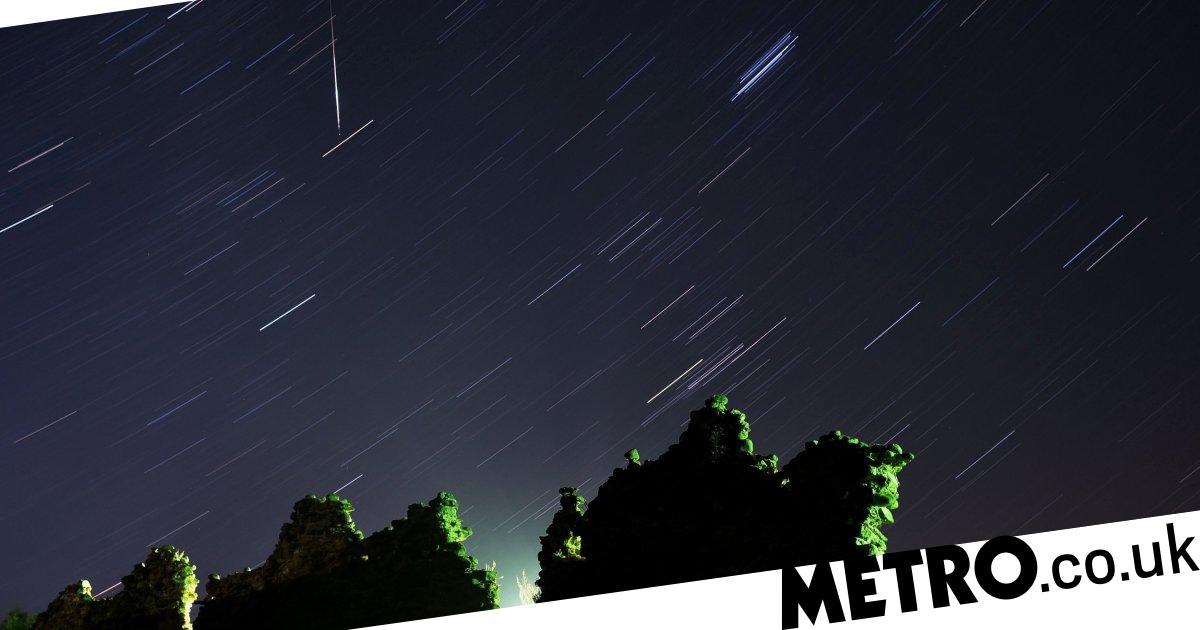Star-gazers all over the world headed outside last night to see the dazzling effects of the annual Perseid meteor shower.
The shooting stars, which reach their peak every August, are produced by debris from the 109P/Swift-Tuttle comet, which passes earth every 133 years.
Each bit of debris creates a streak of light across the sky, with thousands of photographers managing to capture the effect on film.
They are best seen from an area with a wide horizon and minimal light pollution, for example in a field or a park.
The shower is widely considered to be one of the highlights of the celestial calendar and last night was deemed peak watching time for the UK.
Other countries turning out to watch the lights included Hungary, Israel, Spain, Canada and Bosnia and Herzegovina.
British author Heidi Swain waited up until 2am to watch the meteor shower in the UK, describing it as ‘so pretty’ online.
While Twitter user Jennifer Street described witnessing the shower from her back garden in Wales as ‘unbelievably magical’.
However, some space-fans across the globe left disappointed as the meteors failed to make as dramatic impact as they have done previously.
In the US, a full moon altered the visibility of the shower, reducing meteor rates from over 60 per hour down to 15-20 per hour, a Nasa spokesperson said.
While in Mitzpe Ramon, in the heart of the Negev Desert, Israel, around one meteor fell per minute – far less than previous years.
One family, who travelled two and a half hours to watch the display, told Reuters their children became ‘very impatient’ with the show.
Professor Rennan Barkana, head of astrophysics at Tel Aviv University, said this year’s shower was ‘not as intense’ due to a smaller amount of the comet’s debris entering the atmosphere.
This was because the Earth had passed through a sparser part of the comet’s debris, he added.
In the UK, the meteor shower peaked between midnight and 5am on August 13, with Wales, central and southern England deemed the areas with the best view.
The Perseids are still active until August 24, although astronomers say they will be less intense for the rest of the month.
Got a story for Metro.co.uk?
If you have a story for our news team, email us at [email protected].
You can also follow us on Facebook and Twitter.
Source: Read Full Article


